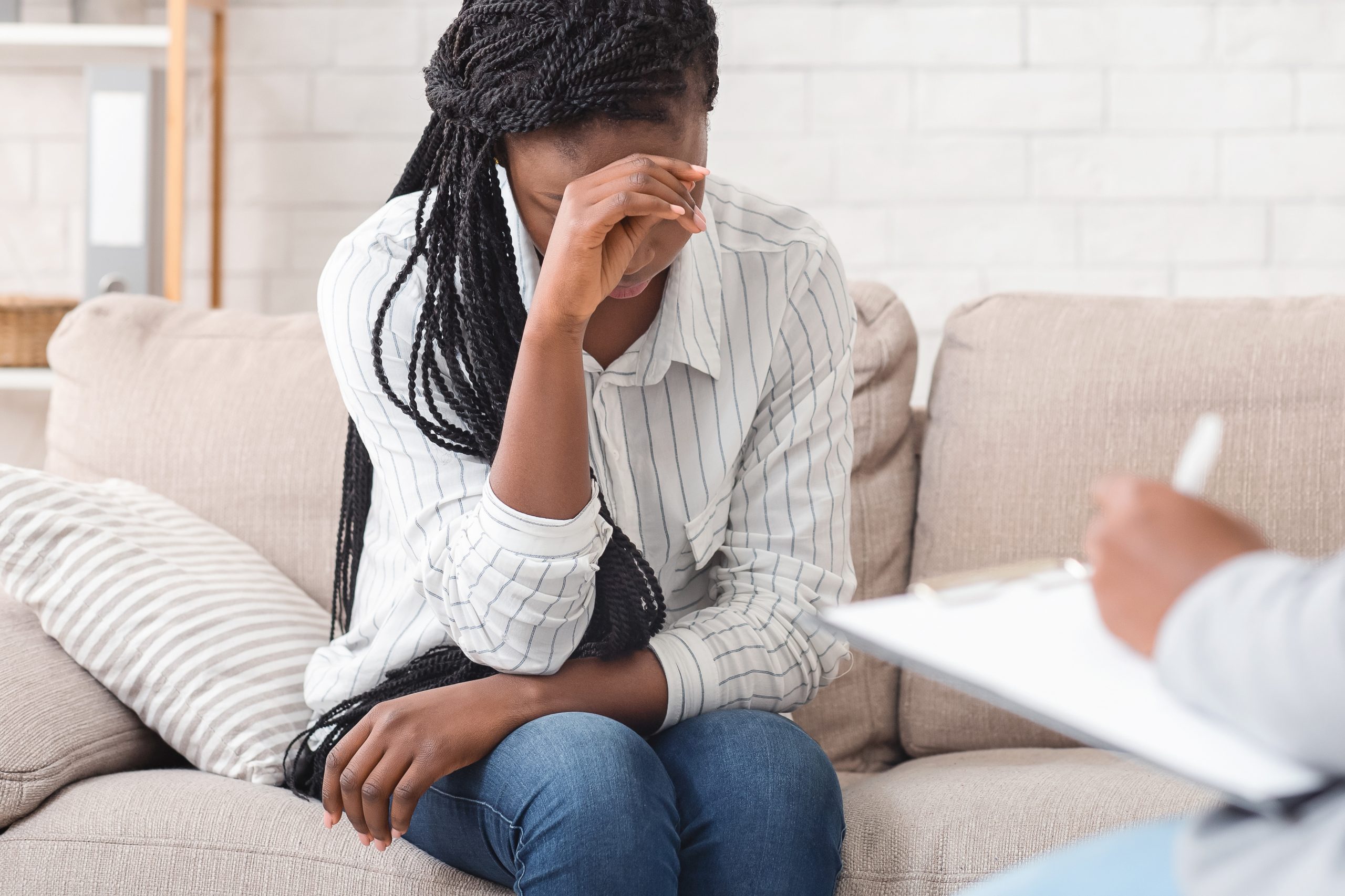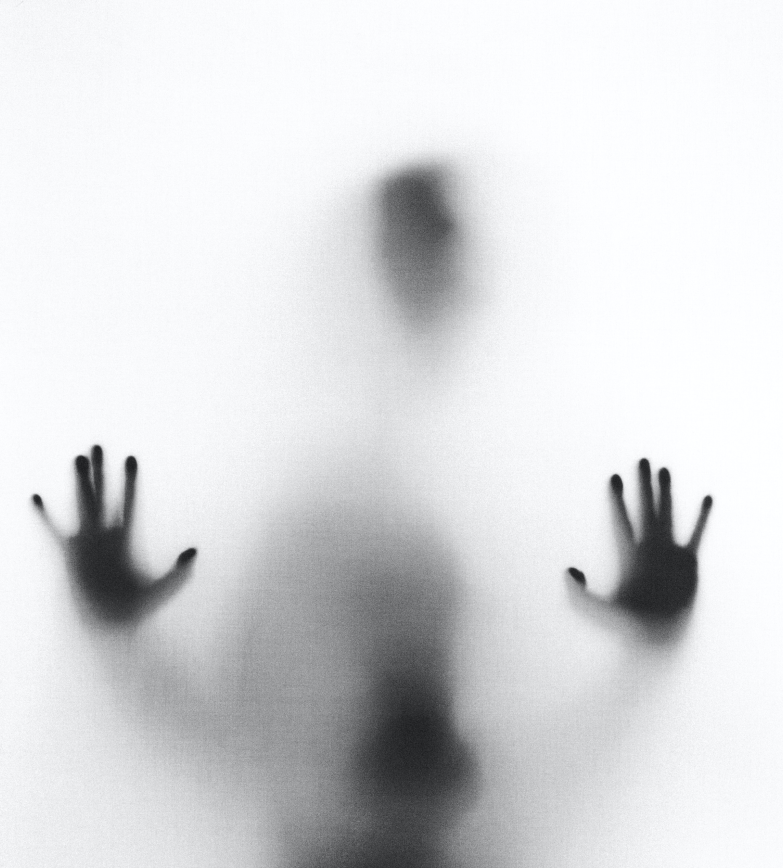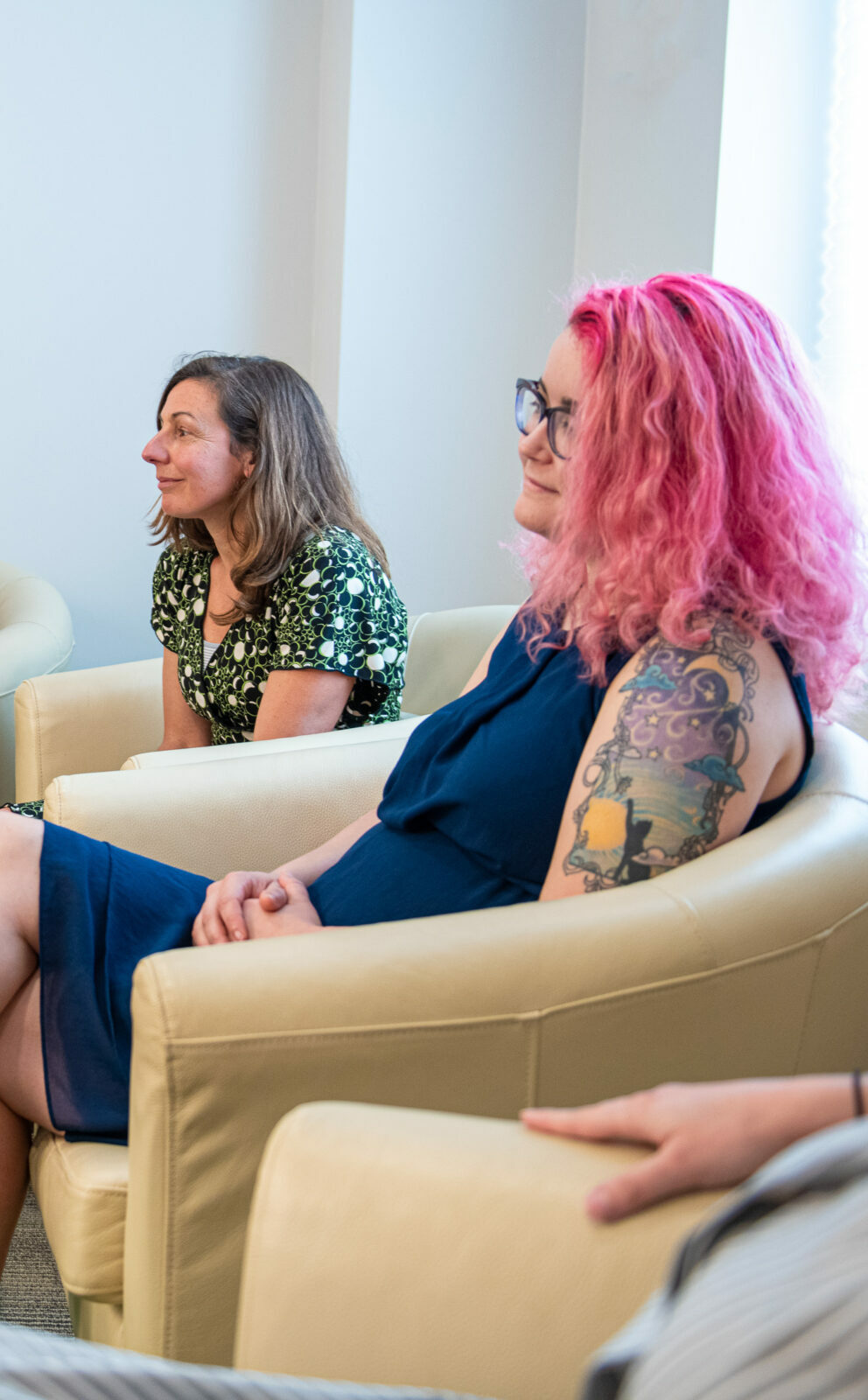
Treatment of anxiety disorders
We all experience anxiety sometimes. In fact, it’s an essential driver of motivation, restraint and reflection. But when anxiety starts to impact our lives to the point of obsessions, significant worry, panic, or if it affects our relationships or sleep, it becomes necessary to seek help to address it. Treatment for anxiety disorders is collaborative and individualized to your specific needs.

This may involve exposure therapy, education, specific CBT/DBT skills, mindfulness, medication, and a variety of sleep hygiene/sleep restriction approaches to improve your self-efficacy and strengthen your ability to improve your life. Anxiety reinforces itself by telling us to avoid situations in which it peaks. For this reason, coming to treatment is a process of facing that anxiety head-on.
We support clients facing these anxiety disorders:
- Panic disorder
- OCD and Trichotillomania
- Social anxiety
- Trauma and PTSD
- Anxiety and sleep
- Anxiety and substance use
- Effective therapies
Social anxiety
The fear that we’ll be judged, look weird, put our foot in it, or be embarrassed is ubiquitous but overwhelming for many, who avoid going out and reaching out. Alcohol and other drugs often seem to help, at least for the short term. It can feel so lonely.
You’re not alone. We can help you feel better so you can get back to living your life. Our team works holistically with you to help you understand and manage your condition. We work with you to develop practical strategies to push your safety zone, reduce and bear your anxiety, and unknit the thoughts and feelings that keep you tied up.
Trauma & PTSD
We’re here for you. We’re experts at trauma treatment. We offer hope and healing for those struggling with the effects of trauma.
Trauma and post-traumatic stress disorder (PTSD) are so common and leave us hypervigilant, overly cautious and numb to our emotions. Many can have aspects of dissociation ranging from confusion and spaciness to time loss and derealization. Many people turn to drugs and alcohol to manage symptoms. We work with you to understand the core of your trauma, when you developed thoughts about yourself and others that helped you survive then but hinder you now. We will teach you anxiety regulation and healthy biorhythms. And, when you’re ready, go with you into the memories, revisiting and redoing so you can feel control, be unburdened, and live with freedom and security.
Sometimes, medications from many classes, including ketamine, can assist. One day, hopefully, MDMA will be approved for use in this and other conditions.
Using alcohol & drugs
Anxiety can be a very difficult thing to deal with. It can make it hard to relax, sleep, or even function in social situations. Many of the folks we see at Psych Garden have found that alcohol, and drugs – from opiates to benzos or pot – provide temporary relief from their anxiety or insomnia, improve their engagement with others or give them a short-term lift and confidence. While this can provide temporary relief, it’s in the nature of these chemicals that we get tolerant and end up worse than before. The pace of this process depends on the intensity of the use and the genetic propensity to addiction, but for some, it them drops into a deep black hole of repetition and compulsion.
At Psych Garden, we are recognized experts in the intersection of drugs and psychiatric conditions. We understand how to tease it all out, structure a treatment plan that feels good for you, and walk with you through your recovery process.
Effective therapies

We take a personalized approach to treating your anxiety. While some types of anxiety have purely physiological causes, others may be rooted in current circumstances or past trauma. This means each case needs its own, unique approach. What works for one client may be ineffective for another. We get to the root of the issue to understand what will be most helpful to you. Our team works holistically to support your healing.
-
Medication
We choose a combination of medications based on the research, staying focused and as minimalistic as possible.
-
Behavioral interventions
A good caring connection is essential for therapeutic success. We use CBT and ACT, DBT and relational approach.
-
Relational therapies
The main deep models we use derive from AEDP and IFS. Such therapy is important for many to make change last a lifetime